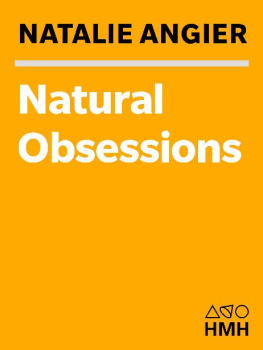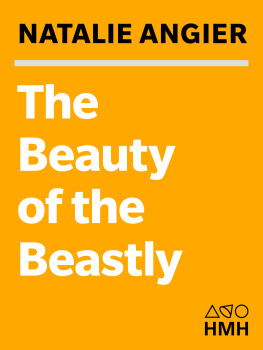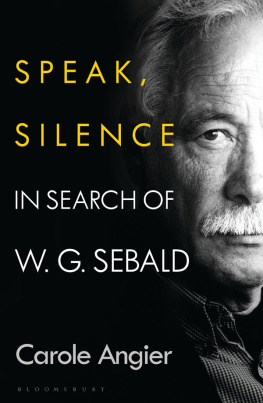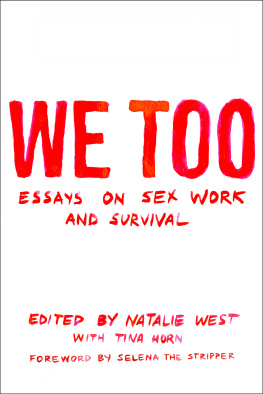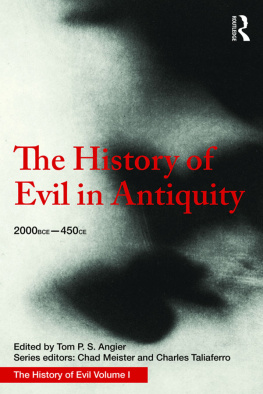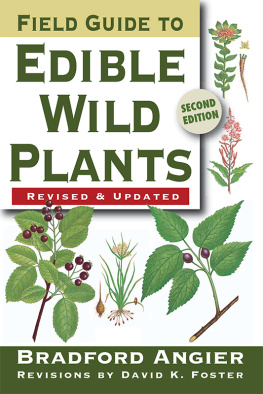Natalie Angier - Natural Obsessions
Here you can read online Natalie Angier - Natural Obsessions full text of the book (entire story) in english for free. Download pdf and epub, get meaning, cover and reviews about this ebook. year: 1998, publisher: Houghton Mifflin Harcourt, genre: Art. Description of the work, (preface) as well as reviews are available. Best literature library LitArk.com created for fans of good reading and offers a wide selection of genres:
Romance novel
Science fiction
Adventure
Detective
Science
History
Home and family
Prose
Art
Politics
Computer
Non-fiction
Religion
Business
Children
Humor
Choose a favorite category and find really read worthwhile books. Enjoy immersion in the world of imagination, feel the emotions of the characters or learn something new for yourself, make an fascinating discovery.
- Book:Natural Obsessions
- Author:
- Publisher:Houghton Mifflin Harcourt
- Genre:
- Year:1998
- Rating:5 / 5
- Favourites:Add to favourites
- Your mark:
- 100
- 1
- 2
- 3
- 4
- 5
Natural Obsessions: summary, description and annotation
We offer to read an annotation, description, summary or preface (depends on what the author of the book "Natural Obsessions" wrote himself). If you haven't found the necessary information about the book — write in the comments, we will try to find it.
Natural Obsessions — read online for free the complete book (whole text) full work
Below is the text of the book, divided by pages. System saving the place of the last page read, allows you to conveniently read the book "Natural Obsessions" online for free, without having to search again every time where you left off. Put a bookmark, and you can go to the page where you finished reading at any time.
Font size:
Interval:
Bookmark:

Contents
First Mariner Books edition 1999
Introduction copyright 1999 by Natalie Angier
Copyright 1988 by Natalie Angier
Foreword copyright 1988 by Lewis Thomas
All rights reserved
For information about permission to reproduce selections from this book, write to or to Permissions, Houghton Mifflin Harcourt Publishing Company, 3 Park Avenue, 19th Floor, New York, New York 10016.
www.hmhco.com
Library of Congress Cataloging-in-Publication Data is available.
ISBN 0-395-92472-3 (pbk.)
e ISBN 978-0-544-35834-8
v2.0716
Acknowledgments
This book would not have been possible without the utmost consideration, patience, and good humor on the part of Robert Weinberg, David Baltimore, and Michael Wigler. They made my life easier as I made theirs more difficult, and for that unbalanced exchange I can only express my deepest gratitude.
I would also like to thank the many scientists who took the time to talk with me, not all of whom appear in the narrative. I am especially grateful to James Watson of Cold Spring Harbor Laboratory; Salvador Luria and Phillip Sharp of MIT; Howard Temin of the University of Wisconsin; Renato Dulbecco, Tony Hunter, Inder Verma, Bart Sefton, and Walter Eckhart of the Salk Institute for Biological Studies; Gerald Fink and Richard Mulligan of the Whitehead Institute for Biomedical Research; Philip Leder, Charles Stiles, and Geoffrey Cooper of Harvard Medical School; Raymond Erikson of Harvard University; John Cairns of the Harvard School of Public Health; Bruce Ames, Steven Martin, Peter Duesberg, and Ira Herskowitz of the University of California, Berkeley; Michael Bishop and Harold Varmus of the University of California, San Francisco; Mariano Barbacid of the Frederick Cancer Research Facility; Hide-saburo Hanafusa of the Rockefeller University; Arthur Levinson of Genentech; William Hayward, Richard Rifkind, and Lloyd Old of Memorial Sloan-Kettering; James Feramisco of Cold Spring Harbor; Frederick Alt and Richard Axel of Columbia University; Michael Waterfield of the Imperial Cancer Research Fund Laboratories; Sheldon Penman, John Buchanan, and Jonathan King of MIT; Stuart Aaronson of the National Cancer Institute; James Broach of Princeton University; Thaddeus Dryja of Massachusetts Eye and Ear Hospital; Brenda Lee Gallie and Robert Phillips of the University of Toronto; Webster Cavenee of the Montreal Branch of the Ludwig Institute for Cancer Research; Wen-Hwa Lee of the University of California at San Diego; Alfred Knudson of Fox Chase Cancer Center; and Robert Ellsworth, David Kitchin, and David Abramson of New York Hospital-Cornell Medical Center.
The spirit of any great research laboratory rests with the young scientists who ply their trade at the bench. To all who shared that spirit with me, my heartiest thanks; this book is for you.
In the course of my research, many people tutored me in molecular biology, but I would like to express a special debt to my original tutor, James Lupski.
Thanks to Clifford Tabin for his detailed review of the manuscript. He probably regretted halfway through having agreed to the chore, but he remained unflinchingly generous to the end.
I could never have written the book without the professional guidance and moral support of Peter Davison and the editors of Houghton Mifflin. If a book is a kind of living organism, my text would have remained protoplasmic had they not intervened.
Finally, thanks to my family and friends for their encouragement, their lost sleep, their forgiveness, and above all their love.
Introduction to the Mariner Edition
I F I HAD TO DRAW the leaves on my family tree, Id give a lot of them the jagged, angry silhouette of a cancer cell. Ive lost more relatives to cancer than to anything else, and some of them at a fairly young age. My father died at fifty-one, when a malignant melanoma tumor spread to his brain. My maternal grandfather also died at fifty-one, of pancreatic cancer. My fathers father died of colon cancer. Great-aunts, great-uncles, and cousins have died of cancer. So when I mull over the likeliest storyline for my own death, which I do to self-indulgent excess, I start with the assumption that it will be from cancer, and then entertain myself by wondering, When? and What kind?
Natural Obsessions is a book about the search for the molecular origins of cancer. It is a book about the nature of basic research and the blood-sweat-and-bones scaffolding of two highly competitive research laboratories: Robert Weinbergs group at the Whitehead Institute of MIT, and Michael Wiglers team at Cold Spring Harbor Laboratory on Long Island. It is about how scientists think, and how they feel, and how they behave. It is about the rush of ecstasy that comes when an experiment works, the virulent paralysis that follows failure, and the many stretches of confusion and ambiguity in between. It is about how scientists are as human as the rest of us, only smarter and with less attractive footwear.
What the book most emphatically is not about is the search for a cure for cancer. As I explain in the first chapter, most basic scientists do not search for cures. They ask how the cell grows or stops growing. They ask about dominant cancer genes and tumor-suppressor genes, signaling pathways and membrane ruffling. They dont like anybodys mentioning the phrase cure for cancer. It makes them nervous. Are taxpayers getting impatient? they worry. Will the government cut off our grant money and make us look for a real job?
Basic researchers dont like talking about cures for cancer, and neither, I admit, do I. Im scared of cancer, and I fret hypochondriacally about every headache or new freckle. I would love to imagine that the people whom I profile in Natural Obsessions , or any of the thousands of others in the field of oncogene, or cancer gene, research, will soon make spectacular breakthroughs with immediate bedside applications. I would love to imagine that scientists are on the verge of conquering cancer, yet I cant say Im confident that they are. They may be, or they may not be. Nobody knows. In the eleven years since this book first appeared, scientists have made relatively little progress in applying the fruits of basic research to the treatment of cancer. They have not come up with any magic bullets; they havent even found the right gun yet. It makes sense to hope that a firm understanding of the genes and proteins responsible for cancerous transformation will yield more effective therapies. Right now, oncologists rely on the standard treatment troika that they relied on have for decades: surgery, radiation, and chemotherapyor, as the blunt tongues among them put it, slash, burn, and poison. Chemotherapy and radiation are quite good at killing cancer cells, but they are also notoriously good at killing normally dividing cells, which is why the therapies lead to side effects such as intense nausea, hair loss, and immune suppression, and why the treatments cant always be used in doses high enough to destroy every last tumor cell. If researchers could design drugs that target mutant genes or abnormal proteins found only in malignant cells, they theoretically could destroy those cells while leaving normal tissue unharmed.
Next pageFont size:
Interval:
Bookmark:
Similar books «Natural Obsessions»
Look at similar books to Natural Obsessions. We have selected literature similar in name and meaning in the hope of providing readers with more options to find new, interesting, not yet read works.
Discussion, reviews of the book Natural Obsessions and just readers' own opinions. Leave your comments, write what you think about the work, its meaning or the main characters. Specify what exactly you liked and what you didn't like, and why you think so.

